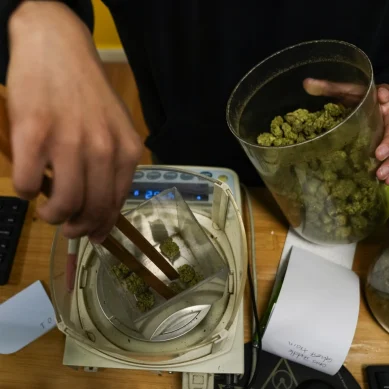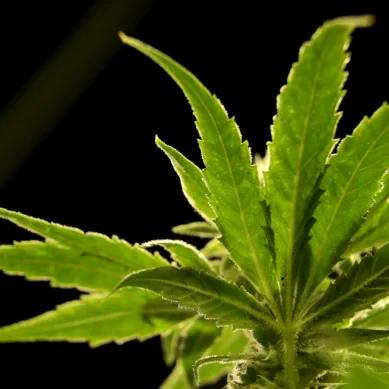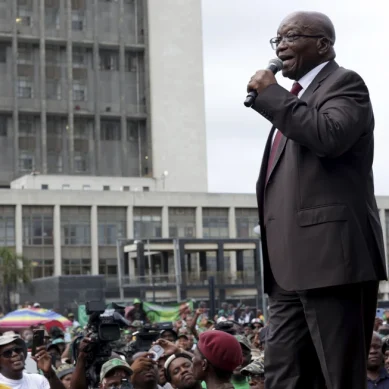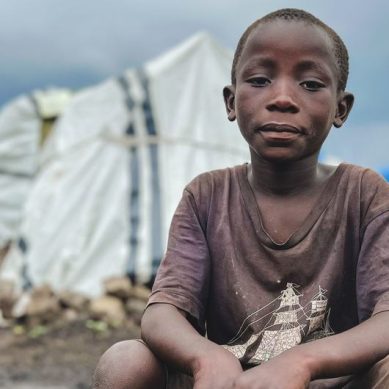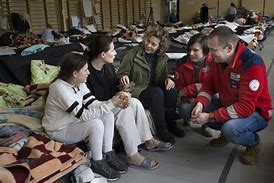
Washington’s vaunted “rules-based international order” has undergone a stress test following Russia’s invasion of Ukraine and here’s the news so far: it hasn’t held up well. In fact, the disparate reactions to Vladimir Putin’s war have only highlighted stark global divisions, which reflect the unequal distribution of wealth and power.
Such divisions have made it even harder for a multitude of sovereign states to find the minimal common ground needed to tackle the biggest global problems, especially climate change.
In fact, it’s now reasonable to ask whether an international community connected by a consensus of norms and rules and capable of acting in concert against the direst threats to humankind, exists. Sadly, if the responses to the war in Ukraine are the standard by which we’re judging, things don’t look good.
After Russia invaded, the United States and its allies rushed to punish it with a barrage of economic sanctions. They also sought to mobilise a global outcry by charging Putin with trashing what President Biden’s top foreign policy officials like to call the rules-based international order. Their effort has, at best, had minimal success.
Yes, there was that lopsided vote against Russia in the United Nations General Assembly, the March 2 resolution on the invasion sponsored by 90 countries. One hundred and forty-one nations voted for it and only five against, while 35 abstained. Beyond that, in the “global south” at least, the response to Moscow’s assault has been tepid at best. None of the key countries there – Brazil, India, Indonesia and South Africa, to mention four – even issued official statements castigating Russia.
Some, including India and South Africa, along with 16 other African countries (and don’t forget China though it may not count as part of the global south), simply abstained from that UN resolution. And while Brazil, like Indonesia, voted yes, it also condemned “indiscriminate sanctions” against Russia.
None of those countries joined the United States and most of the rest of Nato in imposing sanctions on Russia, not even Turkey, a member of that alliance. In fact, Turkey, which last year imported 60 billion cubic metres of natural gas from Russia, has only further increased energy cooperation with Moscow, including raising its purchases of Russian oil to 200,000 barrels per day – more than twice what it bought in 2021.
India, too, ramped up oil purchases from Russia, taking advantage of discounted prices from a Moscow squeezed by US and Nato sanctions. Keep in mind that, before the war, Russia had accounted for just one per cent of Indian oil imports. By early October, that number had reached 21 per cent. Worse yet, India’s purchases of Russian coal – which emits far more carbon dioxide into the air than oil and natural gas – may increase to 40 million tons by 2035, five times the current amount.
Despite the risk of facing potential UN sanctions thanks to the Countering America’s Adversaries Through Sanctions Act (CAATSA), India also stuck by its earlier decision to buy Russia’s most advanced air-defence system, the S-400. The Biden administration eventually threaded that needle by arranging a waiver for India, in part because it’s seen as a major future partner against China with which Washington has become increasingly preoccupied (as witnessed by the new National Security Strategy).
The prime concern of the Indian leadership, however, has been to preserve its close ties with Russia, war or no war, given its fear of a growing alignment between that country and China, which India sees as its main adversary.
What’s more, since the invasion, China’s average monthly trade with Russia has surged by nearly two-thirds, Turkey’s has nearly doubled and India’s has risen more than threefold, while Russian exports to Brazil have nearly doubled as well. This failure of much of the world to heed Washington’s clarion call to stand up for universal norms stems partly from pique at what’s seen as the West’s presumptuousness.
On March 1st, when 20 countries, a number from the European Union, wrote Pakistan’s then-prime minister Imran Khan (who visited Putin soon after the war began), imploring him to support an upcoming General Assembly resolution censuring Russia, he all too typically replied: “What do you think of us? Are we your slaves… [Do you take for granted] that whatever you say we will do?” Had such a letter, he asked, been sent to India?
Similarly, Celso Amorim, who served as Brazil’s foreign minister for seven years during the presidency of Luis Inacio “Lula” de Silva (who has reclaimed his former job), declared that condemning Russia would amount to obeying Washington’s diktat. For his part, Lula claimed Joe Biden and Ukrainian President Volodymyr Zelensky were partly to blame for the war. They hadn’t worked hard enough to avert it, he opined, by negotiating with Putin. South African President Cyril Ramaphosa blamed Putin’s actions on the way Nato had, since the collapse of the Soviet Union, provocatively expanded toward Russia’s border.
Many other countries simply preferred not to get sucked into a confrontation between Russia and the West. As they saw it, their chances of changing Putin’s mind were nil, given their lack of leverage, so why incur his displeasure? (After all, what was the West offering that might make choosing sides more palatable?)
Besides, given their immediate daily struggles with energy prices, debt, food security, poverty and climate change, a war in Europe seemed a distant affair, a distinctly secondary concern. Brazilian President Jair Bolsonaro typically suggested that he wasn’t about to join the sanctions regime because his country’s agriculture depended on imported Russian fertiliser.
Leaders in the global south were also struck by the contrast between the West’s urgency over Ukraine and its lack of similar fervour when it came to problems in their part of the world. There was, for instance, much commentary about the generosity and speed with which countries like Poland and Hungary (as well as the United States) embraced Ukrainian refugees, having largely shut the door on refugees from Afghanistan, Iraq and Syria.
In June, while not mentioning that particular example, India’s Foreign Minister Subrahmanyam Jaishankar, highlighted such sentiments when, in response to a question about the European Union’s efforts to push his country to get tougher on Russia, he remarked that Europe “has to grow out of the mindset that [its] problems are the world’s problem, but the world’s problems are not Europe’s problem.”
Given how “singularly silent” European countries had been “on many things which were happening, for example in Asia,” he added, “you could ask why anybody in Asia would trust Europe on anything at all?”
The West’s less-than-urgent response to two other problems aggravated by the Ukraine crisis that hit the world’s poor countries especially hard bore out Jaishankar’s point of view. The first was soaring food prices sure to worsen malnutrition, if not famine, in the global south. Already in May, the World Food Programme warned that 47 million additional people (more than Ukraine’s total population) were going to face “acute food insecurity” thanks to a potential reduction in food exports from both Russia and Ukraine – and that was on top of the 193 million people in 53 countries who had already been in that predicament (or worse) in 2021.
A July deal brokered between Ukraine and Russia by the UN and Turkish President Recep Tayyip Erdoğan did, in fact, ensure the resumption of food exports from both countries (though Russia briefly withdrew from it as October ended). Still, only a fifth of the added supply went to low-income and poor countries. While global food prices have fallen for six months straight now, another crisis cannot be ruled out as long as the war in Ukraine drags on.
The second problem was an increase in the cost of both borrowing money and of debt repayments following interest rate hikes by Western central banks seeking to tamp down inflation stoked by a war-induced spike in fuel prices.
On average, interest rates in the poorest countries jumped by 5.7 per cent – about twice as much as in the US – increasing the cost of their further borrowing by 10 per cent to 46 per cent
A more fundamental reason much of the global south wasn’t in a hurry to pillory Russia is that the West has repeatedly defenestrated the very values it declares to be universal. In 1999, for instance, Nato intervened in Kosovo, following Serbia’s repression of the Kosovars, even though it was not authorised to do so as required by a UN Security Council resolution (which China and Russia would have vetoed).
- A TomDispatch report
